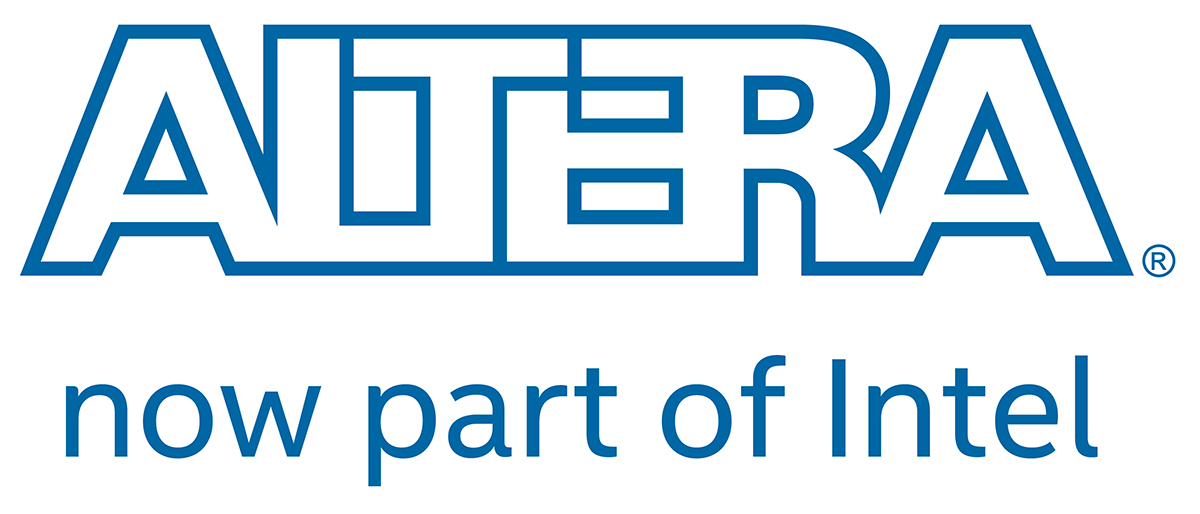Intel Purchases FPGA Company Altera For $16.7 Billion
For its final move in 2015, Intel bought out Altera in an all-cash purchase of approximately $16.7 billion. Obviously, Altera will no longer keep its original name; instead, it will be part of Intel's business group under the new brand called the Programmable Solutions Group (PSG), with Dan McNamara, Altera's former vice president and general manager for its embedded and systems division, at the helm.
Altera's main focus of production was field-programmable gate arrays (FPGA), and Intel wants the PSG to continue working in that field. However, it will also collaborate with Intel's Data Center and Internet of Things groups to create new products. As for those who still utilize Altera's products, Intel assured customers that it will support current and future devices created by the PSG, such as its lineup of FPGAs and ARM-based SoCs.
Prior to the purchase of Altera, the two companies collaborated in the past. In 2013, Intel announced that its 14nm tri-gate transistor technology (which was used for military devices, wireline communications and cloud networking) would include Altera's FPGAs. Later that same year, Altera's Stratix 10 SoC devices would incorporate a quad-core, 64-bit ARM Cortex A53 processor. The SoC itself was manufactured on Intel's 14nm tri-gate technology.
Follow Rexly Peñaflorida II @Heirdeux. Follow us @tomshardware, on Facebook and on Google+.
Get Tom's Hardware's best news and in-depth reviews, straight to your inbox.
Rexly Peñaflorida is a freelance writer for Tom's Hardware covering topics such as computer hardware, video games, and general technology news.
-
jimmysmitty Reply17217721 said:The beast will keep growing and consuming until there is nothing else left.
Any properly run company will grow and purchase businesses that are in their interests, much like how Dell bought EMC who is the parent company to VMWare (a very highly used Virtual Machine software for servers) since they have a big hand in industry grade servers. -
InvalidError Nothing really new here since the 16.7G$ purchase agreement was signed back in July.Reply -
Mac266 I don't get it. So they make PGA sockets/CPU's? And here I thought Intel were full LGA now...Reply -
jimmysmitty Reply17217894 said:I don't get it. So they make PGA sockets/CPU's? And here I thought Intel were full LGA now...
Desktops are LGA while most of their laptop CPUs are BGA. This is just them buying a company who is in a sector they are interested in. -
InvalidError Reply
FPGA in this context has nothing to do with sockets. It stands for "Field-Programmable Gate Array" which is a form of programmable logic often used for rapid-prototyping, signal processing, network routers/switches and other applications that require very fast, low-latency processing but either lack the production volume to justify a custom ASIC or where devices must be field-upgradable/customizable.17217894 said:I don't get it. So they make PGA sockets/CPU's? And here I thought Intel were full LGA now...
If you design a switch or router around an ASIC chipset, you have to make every future feature fit within the functions baked into your ASICs. If you use FPGAs, you can make the router or switch do whatever you want whenever you want, as long as the logic design still fits inside available FPGAs and connected resources.
FPGAs are at the boundary between software and hardware engineering. -
Drazen Intel already has CPUs with FPGA built-in. Consider this, Core CPU with Stratix 3 in same chip. When Windows/Linux application needs fast encrypter it will just download "RTL" into FPGA and will run encryption in hardware at few GHz. Next minute (or if enough space in FPGA at the same time) will download decrypter and will also run it in hardware at some GHz.Reply
Consider this in GPU where game can create its own shader!
And, of course, consider viruses using FPGA to hide themselves. -
InvalidError Reply
Good luck achieving "few GHz" in an FPGA, only the most basic constructs will achieve more than 1GHz. For crypto algorithms which use tons of 32bits multiplications, 500MHz is a more realistic clock target.17218522 said:it will just download "RTL" into FPGA and will run encryption in hardware at few GHz. Next minute (or if enough space in FPGA at the same time) will download decrypter and will also run it in hardware at some GHz.
FPGA-based logic is not intended to break clock speed records - leave that to ASICs which don't have the massive interconnect overhead. Where FPGAs shine vs CPUs is their ability to run entire algorithms' pipeline concurrently in some series-parallel combination. FPGAs may only have ~1/10th the clock frequency of a CPU but they can work on dozens or hundreds of different things at the same time with execution pipelines tailored exactly for the problem at hand.
I do not think GPU shaders have much to fear from FPGAs: each of your RTL shaders would be several times the size of a single ASIC shader and run at 1/3-1/2 the frequency, which means your RTL shader would need to be 10-100X more efficient per clock than HLSL output to break even. -
iam2thecrowe Some giant needs to acquire AMD like this. Someone with cash. Then we might start to see something out of that company.Reply
